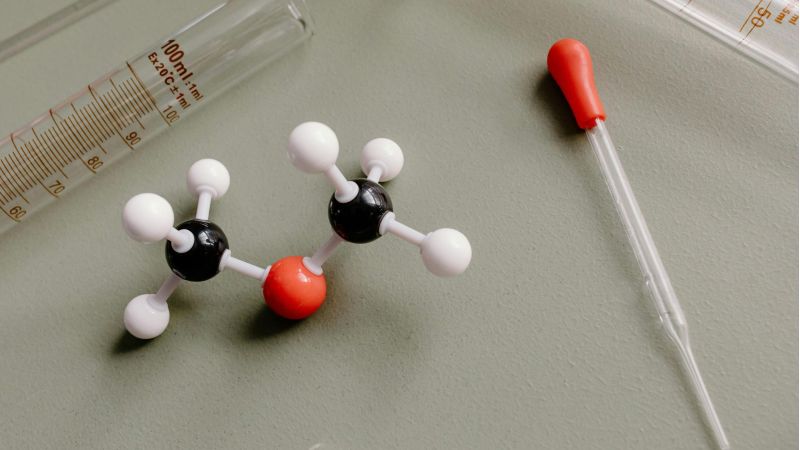
What are David Sinclair’s Views on NAD Supplementation?
David Sinclair, a renowned scientist and professor, has dedicated his career to studying NAD supplementation and its implications for human health.
With a deep understanding of NAD’s role in aging and disease prevention, Sinclair’s research has shed light on potential strategies for maintaining optimal health with age.
So what are his views on NAD supplementation?
In this article, you’ll discover:
- The fascinating background of Dr. David Sinclair, a trailblazer in the science of aging and longevity.
- The essential role of Nicotinamide Adenine Dinucleotide (NAD) in our health and how it could be the key to aging gracefully.
- Sinclair’s cutting-edge research on NAD supplementation, his visionary insights, and the transformative potential this holds for our future.
Understanding David Sinclair’s Background and Research Focus
Sinclair’s Early Years and Education
Sinclair’s journey into the world of science began early in his life. Growing up in Australia, he developed a keen interest in biology and genetics. As a child, he would spend hours exploring the natural world, observing the intricate patterns of life, and pondering the mysteries of existence. His fascination with the mechanisms underlying aging soon took hold, fueling his desire to unravel the secrets of longevity.
Driven by his passion, Sinclair pursued a Ph.D. in genetics at the prestigious University of New South Wales. Under the guidance of esteemed professors, he delved deep into the realm of genetic research, unraveling the complex interactions that govern biological makeup. His groundbreaking work laid the foundation for his future endeavors in the field of aging.
After completing his doctoral studies, Sinclair embarked on a postdoctoral fellowship at the renowned Massachusetts Institute of Technology (MIT) in the United States. This experience marked a pivotal moment in his career as he worked alongside some of the brightest minds in the scientific community. Immersed in an environment teeming with innovation and intellectual curiosity, Sinclair’s passion for aging research flourished.
Sinclair’s Research Journey and Achievements
“….require a molecule called nicotinamide adenine dinucleotide, or NAD. As we will see later, the loss of NAD as we age, and the resulting decline in sirtuin activity, is thought to be a primary reason our bodies develop diseases when we are old but not when we are young.” Dr. David Sinclair
Throughout his research journey, Sinclair has made significant contributions to the field of aging and longevity. His relentless pursuit of knowledge has led him to uncover groundbreaking insights into the aging process, revolutionizing an understanding of aging and providing hope for a healthier future.
One of Sinclair’s notable achievements1 was his discovery of the role of NAD, short for nicotinamide adenine dinucleotide, in aging. NAD is a critical coenzyme involved in various metabolic processes in the body. Sinclair’s pioneering research revealed that NAD levels decline with age, leading to a cascade of detrimental effects on our overall health and vitality.
This groundbreaking finding opened up new avenues for intervention, sparking a global race to develop therapies that could restore NAD levels and potentially reverse the aging process.
Furthermore, Sinclair’s research has shed light on the intricate interplay between genetics and aging. He has uncovered key genetic pathways that influence the rate of aging, offering tantalizing possibilities for targeted interventions. By manipulating these pathways, Sinclair aims to unlock the secrets of longevity and pave the way for a future where age-related diseases are no longer a burden on society.
In addition to his scientific achievements, Sinclair is also a passionate advocate for public engagement in science. He believes in the power of education and outreach to inspire the next generation of scientists and foster a society that values scientific progress. Through his TED talks, public lectures2, and media appearances, Sinclair has become a prominent figure in the science community, captivating audiences with his enthusiasm and dedication to unraveling the mysteries of aging.
The Role of NAD in Human Health
What is NAD and Why is it Important?
NAD, or nicotinamide adenine dinucleotide, is an essential molecule that plays a key role in cellular metabolism. It serves as a critical cofactor for enzymes involved in various metabolic processes, including energy production, DNA repair, and gene expression. Without adequate levels of NAD, cellular functions become compromised, leading to aging and disease.
Regarding energy production, NAD is involved in converting nutrients such as carbohydrates, fats, and proteins into usable energy. This process, known as cellular respiration, is essential for the proper functioning of our cells and tissues. NAD acts as a shuttle, carrying electrons from one enzyme to another, facilitating the production of ATP, the energy currency of cells.
In addition to its role in energy production, NAD is crucial for DNA repair. DNA is constantly exposed to damaging agents, both internal and external. NAD plays a crucial role in repairing this damage, ensuring the integrity of genetic material. Without sufficient NAD levels, DNA repair becomes less efficient, leading to the accumulation of DNA damage over time. This accumulation is one of the hallmarks of aging.
The Connection Between NAD and Aging
As Sinclair’s research has demonstrated, declining NAD levels contribute to the aging process. NAD plays a crucial role in DNA repair, which becomes less efficient as NAD levels decline. This leads to the accumulation of DNA damage, a hallmark of aging.
Furthermore, NAD regulates sirtuins, a protein class that plays a vital role in maintaining healthy cellular function. Sirtuins help protect against age-related diseases by promoting DNA repair, increasing cellular resistance to stress, and regulating metabolic processes.
One of the key ways sirtuins exert their beneficial effects is through a process called deacetylation. Sirtuins can modify their activity and function by removing acetyl groups from certain proteins. This deacetylation process depends on NAD levels, as NAD is a co-substrate for sirtuin enzymes. Therefore, when NAD levels decline, sirtuin activity is compromised, decreasing their beneficial effects on cellular health.
Moreover, NAD also regulates the activity of other enzymes involved in cellular metabolism and stress response. For example, NAD-dependent enzymes called PARPs (poly ADP-ribose polymerases) are involved in DNA repair and maintaining genomic stability. These enzymes use NAD as a substrate to add ADP-ribose units to target proteins, modifying their function and facilitating DNA repair.
Additionally, NAD is involved in the regulation of cellular redox balance. It participates in redox reactions, acting as an electron carrier, which helps maintain the balance between oxidized and reduced molecules in the cell. This balance is crucial for properly functioning various cellular processes, including energy production and antioxidant defense mechanisms.
Overall, NAD plays a multifaceted role in human health, influencing various cellular function and metabolism aspects. Its decline with age has been implicated in the aging process and the development of age-related diseases. Understanding the importance of NAD and finding ways to maintain or boost its levels may have profound implications for promoting healthy aging and preventing age-related diseases.

NAD pathways simply put
David Sinclair’s Research on NAD Supplementation
Sinclair’s Initial Findings on NAD Supplementation
Sinclair’s research has demonstrated that replenishing NAD levels in cells can profoundly affect health and lifespan. By supplementing with precursors of NAD, such as nicotinamide riboside and nicotinamide mononucleotide, it is possible to restore NAD levels and promote cellular health.
One of the key discoveries Sinclair and his team made is the role of NAD in mitochondrial function. Mitochondria are the powerhouses of cells responsible for generating energy. When you age, mitochondrial function declines, decreasing energy production and increasing cellular damage. However, Sinclair’s research has shown that NAD supplementation can reverse this decline, improving mitochondrial function and restoring cellular energy levels.
Furthermore, Sinclair’s studies have also revealed that NAD supplementation enhances cellular resilience. As cells age, they become more susceptible to damage and stress. This can lead to a variety of age-related diseases and conditions. However, by boosting NAD levels, cells are better equipped to handle stress and maintain their integrity, reducing the risk of age-related decline.
Animal studies conducted by Sinclair and his team have provided compelling evidence for the benefits of NAD supplementation. In one study, mice given NAD precursors showed improved physical endurance and increased lifespan compared to control mice. These findings have sparked widespread interest in NAD as a potential anti-aging intervention.
The Impact of NAD Supplementation on Aging
Building on his initial findings, Sinclair and his colleagues have conducted further studies to investigate the impact of NAD supplementation on aging. The results have been promising, suggesting that NAD supplementation has a range of positive effects on various aspects of aging.
One area where NAD supplementation has shown promise is in metabolic function. Metabolism slows down with age, making it harder to maintain a healthy weight and manage blood sugar levels. However, studies have shown that NAD supplementation can improve metabolic function, helping to regulate blood sugar levels and promote weight management.
In addition to metabolic benefits, NAD supplementation has also been linked to enhanced cognitive performance. Cognitive decline becomes more common as you age, with memory loss and decreased mental sharpness being common symptoms. However, Sinclair’s research has shown that NAD supplementation can improve cognitive function, enhancing memory and cognitive abilities.
Another area where NAD supplementation shows promise is in increasing energy levels. As one ages, one often experiences decreased energy and fatigue more easily. However, studies have shown that NAD supplementation can boost energy levels, providing a natural and sustainable source of energy.
Perhaps one of the most exciting aspects of NAD supplementation is its potential to reduce the risk of age-related diseases. Sinclair’s research has shown that NAD supplementation can help protect against diseases such as diabetes, cardiovascular diseases, and neurodegenerative disorders. By improving cellular health and resilience, NAD supplementation may help delay the onset of these diseases and promote healthy aging.
While further research is needed to understand the long-term effects of NAD supplementation fully, the early findings are highly promising. Sinclair’s groundbreaking research has shed light on the importance of NAD in cellular health and aging, opening up new possibilities for interventions that can improve health and extend lifespan.
Sinclair and NAD Supplementation
Sinclair’s Advocacy for NAD Supplementation
As a leading expert in the field, Sinclair strongly advocates for NAD supplementation to maintain optimal health and prolong lifespan. He believes that by restoring NAD levels, individuals can potentially mitigate the effects of aging and reduce the risk of age-related diseases.
Furthermore, Sinclair emphasizes the importance of adopting a healthy lifestyle alongside NAD supplementation. Regular exercise, a balanced diet, and adequate sleep are all crucial factors that work synergistically with NAD to promote overall well-being and longevity.
Criticisms and Controversies Surrounding Sinclair’s Views
Despite Sinclair’s groundbreaking research and advocacy, his views on NAD supplementation have faced some criticism and controversies. Skeptics argue that the long-term effects of NAD supplementation are still unknown and that more rigorous studies are needed to support its efficacy and safety.
It is essential to acknowledge that while NAD supplementation shows promise, it should not be seen as a panacea. The field of aging research is complex, and the interplay of various factors, such as genetics and lifestyle choices, also play a significant role in our health as we age.
The Future of NAD Supplementation According to Sinclair

Potential Developments in NAD Research
Sinclair envisions a future where NAD supplementation becomes more widely adopted as a preventive measure against age-related diseases. Ongoing research in the field aims to refine supplementation protocols, identify optimal dosages, and further elucidate the mechanisms underlying NAD’s beneficial effects.
Sinclair’s Predictions for NAD Supplementation
In the coming years, Sinclair anticipates that advancements in NAD research will lead to the development of more targeted interventions. These may include personalized strategies based on an individual’s genetic profile, lifestyle factors, and specific health needs.
However, it is crucial to recognize that NAD supplementation is not a magic bullet. It should be considered as one tool in a holistic approach to achieving healthy aging. Factors such as maintaining a balanced diet, engaging in regular physical activity, and managing stress also play crucial roles in promoting overall well-being.
Conclusion
In conclusion, David Sinclair’s research on NAD supplementation has provided valuable insights into the role of NAD in aging and its potential as an anti-aging intervention. By understanding the role of NAD in cellular metabolism and the aging process, Sinclair has laid the groundwork for further exploration of NAD as a means to promote healthy aging and prevent age-related diseases.
While debates and controversies continue to surround the field of NAD supplementation, Sinclair’s work serves as a catalyst for ongoing research and the quest to unlock the secrets of longevity. As more research is done and understanding its health implications deepens, individuals must stay informed and make informed decisions about their well-being. Increase your NAD levels with Accuri®, a NAD+ optimization supplement.
Lastly, if you’re interested in going deeper on health-related content, here are a few of our recent posts that you may want to read:
- 9 Powerful Benefits of Optimizing Your NAD
- What Does Peak Performance Look Like?
- Why Optimized, Precision Medicine is the Future
- Andrew Huberman is Wrong About NAD, NAD+ precursor & Longevity
Referenced Sources:
Read More














